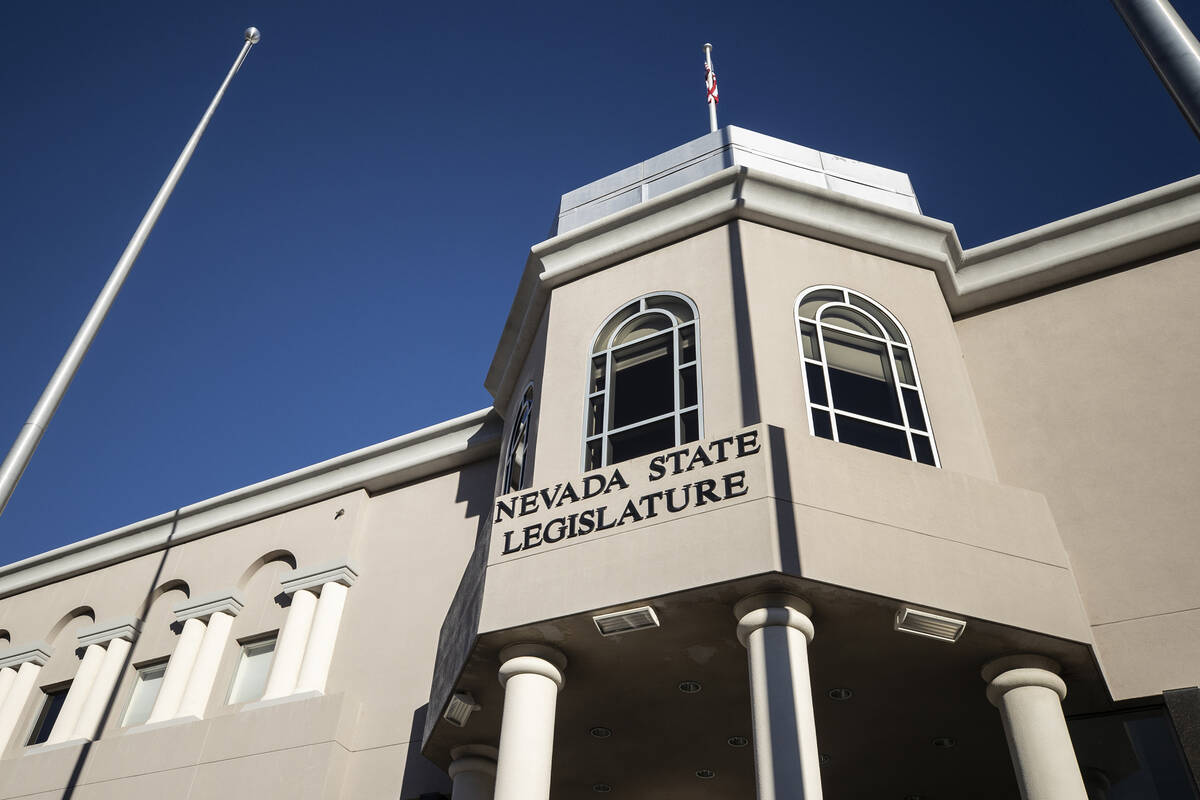Democrats’ redistricting plans advance in Nevada Legislature
CARSON CITY — The Legislature advanced redistricting plans backed by the Democratic majority on Saturday, with party leaders saying they would look at revisions to proposed congressional and legislative district maps in answer to criticism from voting-rights and minority groups.
Meeting on the second day of a special legislative session on redistricting, lawmakers moved the two redistricting bills out of committee to the floors of their respective houses, each of which in turn set the bills up for possible amendment and final votes on Sunday. Senate Bill 1 redraws congressional and state Senate and Assembly districts. Assembly Bill 1 covers districts for the Nevada System of Higher Education’s Board of Regents.
The Senate bill, the weightier of the two, was the subject of a nearly four-hour committee hearing Saturday, later moving out of committee to the Senate floor on a party-line vote. The Democrats’ plan for congressional and state legislative seats drew criticism from opponents who derided it for dividing municipalities and other designated communities of interest, including tribal groups.
Opponents also objected to districts they said were too large or too partisan, or in the case of ethnicity, not Hispanic enough. Hispanic and Latino community representatives in particular turned out to pan the Democratic proposal, saying it weakened their voting strength in specific districts even as it incorporated increased numbers for Hispanic and Latino residents overall.
“I think that there are a lot of suggestions that probably will make their way into the legislation,” Sen. James Ohrenschall, D-Las Vegas, the Senate redistricting committee chair, said ahead of the committee’s vote. “But with the special session and timing (being) of the essence … I think it’s important that we keep this bill moving.”
Voting no, Sen. Heidi Gansert, R-Reno, whose district would see a seven-percentage-point shift in voting strength from Republican to nonpartisan voters, objected to what she called the “disenfranchisement” of a segment of Washoe County residents who would be moved into a much larger multicounty district to the north and east.
All proposed redistricting plans derive from census data that saw Nevada’s population became both more urban and more diverse between 2010 and 2020, increasing by 15 percent overall. As measured by the census, Nevada is now the third-most diverse state in the country, behind Hawaii and California.
In redrawing lines to account for minority populations, redistricting plan writers walk a line between proposing districts that might contain too high a concentration of racial or ethnic minorities — a practice known as “packing” — or that dilute minority voting strength in any one district by dispersing their numbers over several districts, known as “cracking.”
At the same time, plan writers also need to balance for overall population size and attempt to draw districts that conform with municipal boundaries and designated communities of interest.
All of Nevada’s proposed plans also show partisan makeup, based on state voter enrollment data, and give an indication of actual competitiveness based on results of recent closely contested partisan elections.
The Republican legislative minority, whose own redistricting plans got only passing attention in committee Saturday, criticized the Democrats’ proposals on multiple grounds, including excessive municipal divisions, excessive partisanship and ethnic group dilution. They said the Republican plan created more Hispanic-friendly districts than the Democrats’ plan and accused Democrats of “clear partisan intent” to draw Democrat-weighted lines.
“The minority plan has less deviation and is more accurate, increases political competitiveness, diversity, and maintains compact geography,” Senate Minority Leader James Settelmeyer, R-Minden, said in a statement.
Democrats for their part took aim at the Republican plan for congressional districts, saying in a statement that it packed minorities into as few districts as possible to “isolate and weaken” their political clout.
Contact Capital Bureau reporter Bill Dentzer at bdentzer@reviewjournal.com. Follow @DentzerNews on Twitter.


















